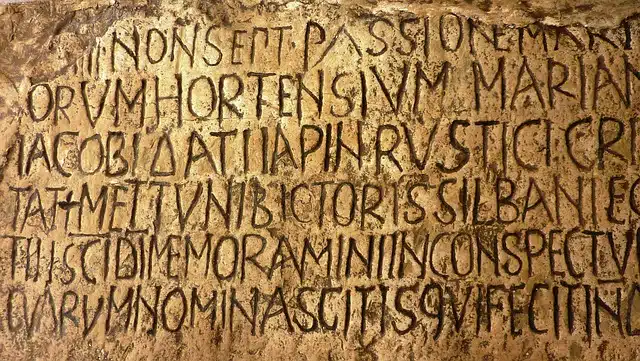
Stricto sensu is a Latin phrase that means "in the strict sense."
The Latin phrase stricto sensu , or sensu stricto , refers to the strict sense . To understand the notion, we must focus on the idea of meaning .
Fundamental concepts
Meaning is understood as the ability of a person to recognize reality and relate to it . Sense is a way of judging or understanding something , or the ability to understand it .
Strict , meanwhile, is what exactly conforms to a rule, a precept, a need, etc. What is understood in a strict sense, in this way, does not allow two interpretations nor does it leave room for subjectivity.
Opposite of lato sensu
The expression stricto sensu is usually used in the field of law as opposed to lato sensu or sensu lato : that is, in a broad sense. If a term or situation has two interpretations, one of which contains the other, the stricto sensu indicates that the issue must be interpreted according to the most limited or adjusted meaning , leaving aside the one that encompasses more.
Strict sensu, in short, implies a strict use of a word. Or, in the specific legal field, a norm , rule or provision.
Limits of the concept
Take the case of freedom of expression . If we think about freedom of expression in stricto sensu, every human being has the right to communicate what they want and in the way they want. Such broad freedom authorizes, for example, insulting and slandering. However, there are laws and regulations that establish specific restrictions or that may sanction the possible effects of the exercise of freedom of expression.
At this point we find a limit similar to the one we can observe when we study the concept of democracy : it is not about the absolute freedom of each individual, but rather the right to build and shape society together , but always through consensus. Living in democracy does not mean going out into the streets and acting as we want, but having the guarantee that no one censors us, that we can raise our voice and share our opinion, even if we do not always obtain the results we expect.
Through these two examples we can understand that the expression stricto sensu is really limited, just as it is intended to be, since it offers us a very narrow view, a slice of reality . It is for this reason that its application is especially useful in the most technical areas, where it is used to solve theoretical situations, but it is not so useful or practical in everyday life, where the material and emotional aspects are mixed in an indivisible way.

It is not correct to say "strictu sensu" or "stricto senso."
Linguistic data
First of all, we must point out that we often find this Latin phrase written incorrectly, even in professional media. The two most common are strict u sensu and stricto sensu . Yes, it is correct to abbreviate it in the following two ways: ss and s. str. .
It is important to note that the case of stricto sensu is not exceptional, but rather normal since all phrases of Latin origin suffer some distortion in everyday speech or, even worse, in the areas of the press and literature. After all, it is a dead language , which is not spoken in any current country and which in its heyday had several versions, each with its own interpretations of phonetics, among other differences. Today, in Spanish we have the tools to avoid the use of foreign terms, but there are those who prefer them to give their texts a supposed brilliance that they consider unattainable by any other means.
